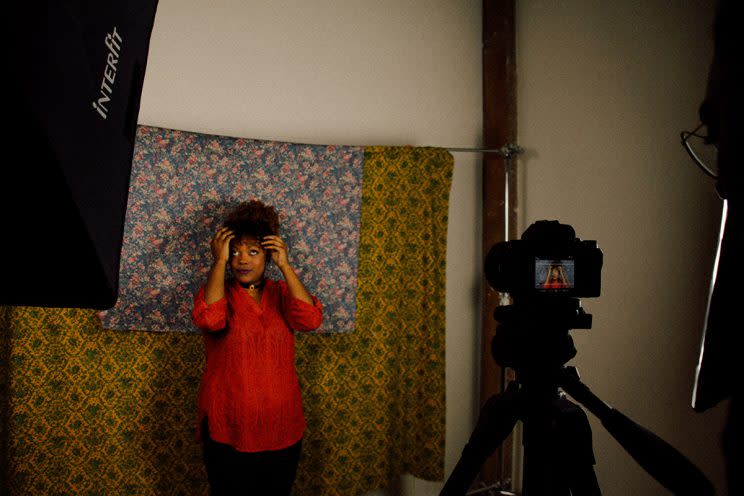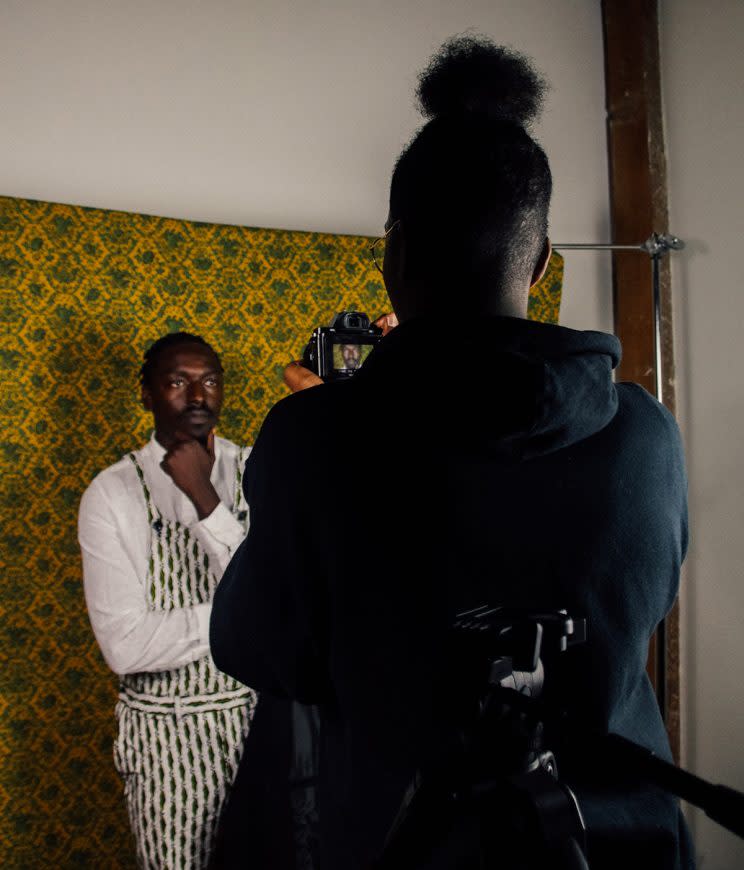This Video About Black Hair Proves There Is No Such Thing as ‘Bad Hair’
Black hair has long been a topic of contention within society — from discussing whether non-people of color wearing traditional African-American hairstyles is cultural appropriation to passing legislation that legalizes the firing of people with dreadlocks if a company so chooses.
Not to mention, having one’s hair labeled as “nappy,” “unmanageable,” and other negative terms is enough to make anyone feel unworthy and not beautiful.
The desire to showcase the beauty of black hair is what inspired tech and media company Blavity’s latest project, Kitchen.
Takaitheartist, the director and videographer of the project, realized that black hair is unparalleled and needs to be celebrated. “Our hair is so versatile and can be expressed in so many different ways. Kitchen is my attempt to capture that beauty in the best way I know how, through film,” he said.
“When coming up with a name for this project, I was trying to figure out something that was unique to black hair, something that is only natural to us,” Takiatheartist told Yahoo Beauty. “When Kitchen popped into my head, I felt it was perfect because it’s unique, and only we would truly understand the meaning.”
Individuals not privy to African-American culture may not necessarily know what a “kitchen” is or how it relates to hair. It is a colloquial term used to describe the area “in the back of the head right above the neck where black hair is difficult to manage,” said Takaitheartist.

This creative project featured individuals with different hair types and styles, including dreadlocks, Bantu knots, and curls. “Narrowing down 200-plus black hair models to about 30 was very difficult … ultimately, I chose people who had the most unique hair in order to get a strong representation of all the various ways black people express our hair,” said Takaitheartist. Among those chosen were Djibril Drame, EmmoLei Sankofa, and India Benet.
“For me as a visual artist and member of a Sufi community in Senegal/West Africa called Yalla Yalla, it’s natural to wear my locks,” said Drame. “[This project] is important to show that you love yourself, you carry your identity, and your blackness.”
Sankofa said, “As onscreen talent, I went into this not really knowing how it would all come together. I just knew that my crown was intriguing and I wanted to show it.”
Next came the task of articulating the words for the connection between one and one’s hair. That’s where poet Imani Love brought her magic.
“A lot of my work serves to pay homage to matriarchy, my ancestors and culture, and this project was another great opportunity to do just that,” Love told Yahoo Beauty. “I knew I wanted the poem to be a love poem for hair, because black hair is such a laborious investment. We can and often do put hours of time into our hair to further embody art.”
Kitchen not only uplifts and celebrates black hair, but it also serves to deconstruct archaic notions attached to it. “Something I believe is detrimental within the black community is when we consider certain black hair ‘good hair.’ Claiming ‘good hair’ insists that there is ‘bad hair,’ and in my opinion, there is nothing ‘bad’ about our hair,” said Takaitheartist.
According to Takaitheartist, there is great fascination outside of the black community about our hair. “Kitchen serves as an answer key to those that are curious.”

It seems this visual love poem came out at the right time. After Solange’s “Don’t Touch My Hair” opened up the black hair dialogue that many of us have been having for years, Blavity found a way with Kitchen to reverberate self-love within black women and men. “I am most proud on the impact this project had on its audience,” said Takaitheartist. “I was not expecting for it to resonate with people the way that it did.”
For Sankofa, being a part of Kitchen was truly liberating. “In hindsight, I realized that showing my ‘kitchen’ gave thousands of other people a sense of pride and comfort. Seeing beauty represented in so many ways made people feel good about themselves.”
Benet felt the effects from an artistic and spiritual perspective. “To me, it implies realness, vulnerability, and a welcoming into an intimate space. I believe through vulnerability, honesty, and creativity, art is its most powerful.”
No matter what one’s attachment to black hair is, it is clear that Kitchen empowers us all to wear our crowns with pride.
Related:
This Beautiful Drawing of Afro Hair Proves Curls Are Far From Ugly
100 Years of Black Beauty in Under a Minute
Let’s keep in touch! Follow Yahoo Beauty on Facebook, Twitter, Instagram, and Pinterest.
